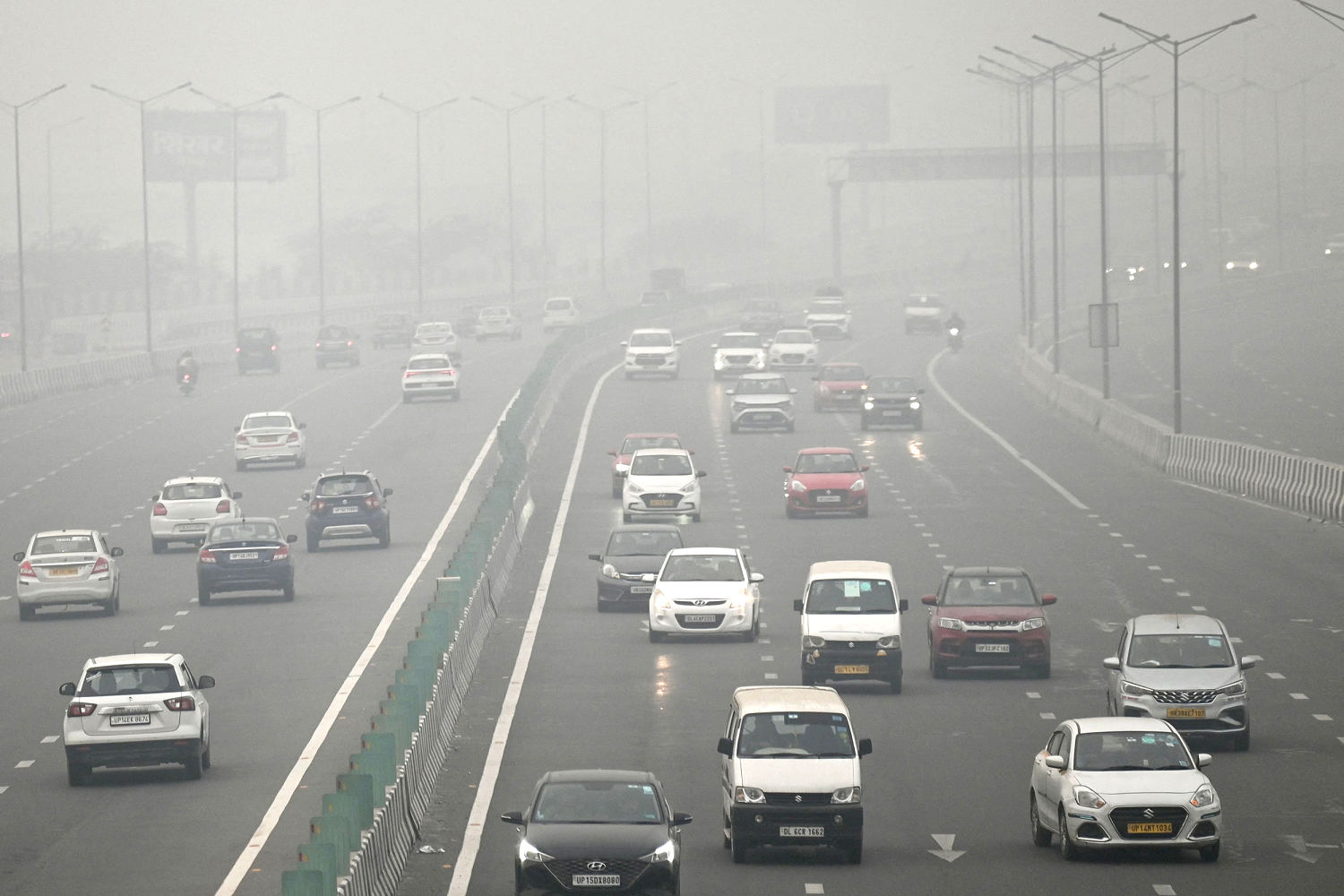[ad_1]

A dense cloud of smog has enveloped the Indian city of Delhi and surrounding areas, sending the air quality index to hazardous highs, making it difficult for residents to breathe and disrupting public life.
So far, government officials have shut down schools, restricted the use of polluting vehicles and paused construction activity.
“The situation arising out of air pollution in the City is extremely worrying,” Delhi’s Lieutenant Governor Vinai Kumar Saxena said in a Friday post on X.
Good or satisfactory air quality corresponds to an index somewhere between zero and 100. The air quality index in Delhi on Monday was roughly 450, according to India’s Central Pollution Control Board.
Saxena posted on Friday that the index had reached 800 in some places. He urged people to remain indoors and cancel large gatherings. Prolonged exposure to an air quality index above 300 can lead to respiratory illness and long-term health problems.
The toxic smog blanket is an annual phenomenon in Delhi.
It gets worse at the start of winter when colder, slower-moving air traps polluting particles. It is also exacerbated by purposeful fires in neighboring agricultural areas, which farmers light to more efficiently clear crop fields before next year’s harvest. According to the Delhi Pollution Control Committee, these crop-burning fires cause pollution to peak in Delhi from Nov. 1 to Nov. 15. The use of firecrackers on Diwali, the annual Hindu festival of lights that will take place on Nov. 12 this year, will further add to the pollution haze.
Delhi’s Environmental Minister Gopal Rai announced on Monday that starting Nov. 13, the city will implement the so-called odd-even rule for one week. The mandate will allow vehicles with odd-numbered license plates to drive on odd-numbered dates, and those with even-numbered plates to drive on even-numbered dates.
The Aam Aadmi Party, which currently governs Delhi, introduced the odd-even vehicle-rationing plan in 2016 to decongest roads and limit pollution. It has been temporarily implemented several times since then.
In a social media post, Delhi’s Education Minister Atishi Marlena on Sunday ordered primary schools to close until Nov. 10 due to the hazardous air pollution. She added that grades six to 12 can shift to online classes.
On Monday, the city’s Directorate of Education doubled down on that mandate, noting that all classes are required to go online, except for grades 10 and 12, which schools have the option to move online.
The Commission for Air Quality Management has also advised that Delhi and surrounding cities in the National Capital Region ban construction activity and allow some public employees to work remotely.
[ad_2]
Source link
